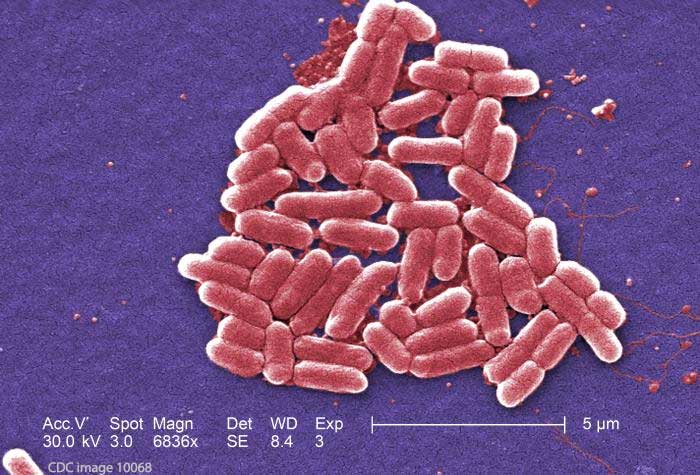Nineteen people are part of an E. coli outbreak in Philadelphia that involves an as-yet-unnamed restaurant or restaurants. The most recent case was reported on September 6, health officials told multiple media outlets.
The case patients range in age from 7 to 90 years old. Health officials have interviewed them and collected food histories to try and determine which food is the source of the outbreak. But they say they are still not able to reveal the name of the restaurant or restaurants involved.
E. coli, a bacteria found in the intestines of warm-blooded animals, causes illness when food contaminated with microscopic amounts of fecal matter is ingested. All kinds of food can be contaminated with E. coli. Recent E. coli outbreaks have been linked to romaine lettuce and ground beef.
The serotype associated with this outbreak produces a kind of poison called a Shiga toxin which causes a more severe illness than other E. coli strains. Teenagers and young children with E. coli infections are at heightened risk of developing a life-threatening complication called hemolytic uremic syndrome (HUS), a form of kidney failure.
The E. coli lawyers at Pritzker Hageman represent people nationwide who have been sickened by contaminated food. Recently they secured a $7.5 million settlement for one client sickened by E. coli. If you are part of this outbreak, we want to represent you. For a free consultation, call us at 1-888-377-8900, text us at 612-261-0856 or, fill out the form below.
